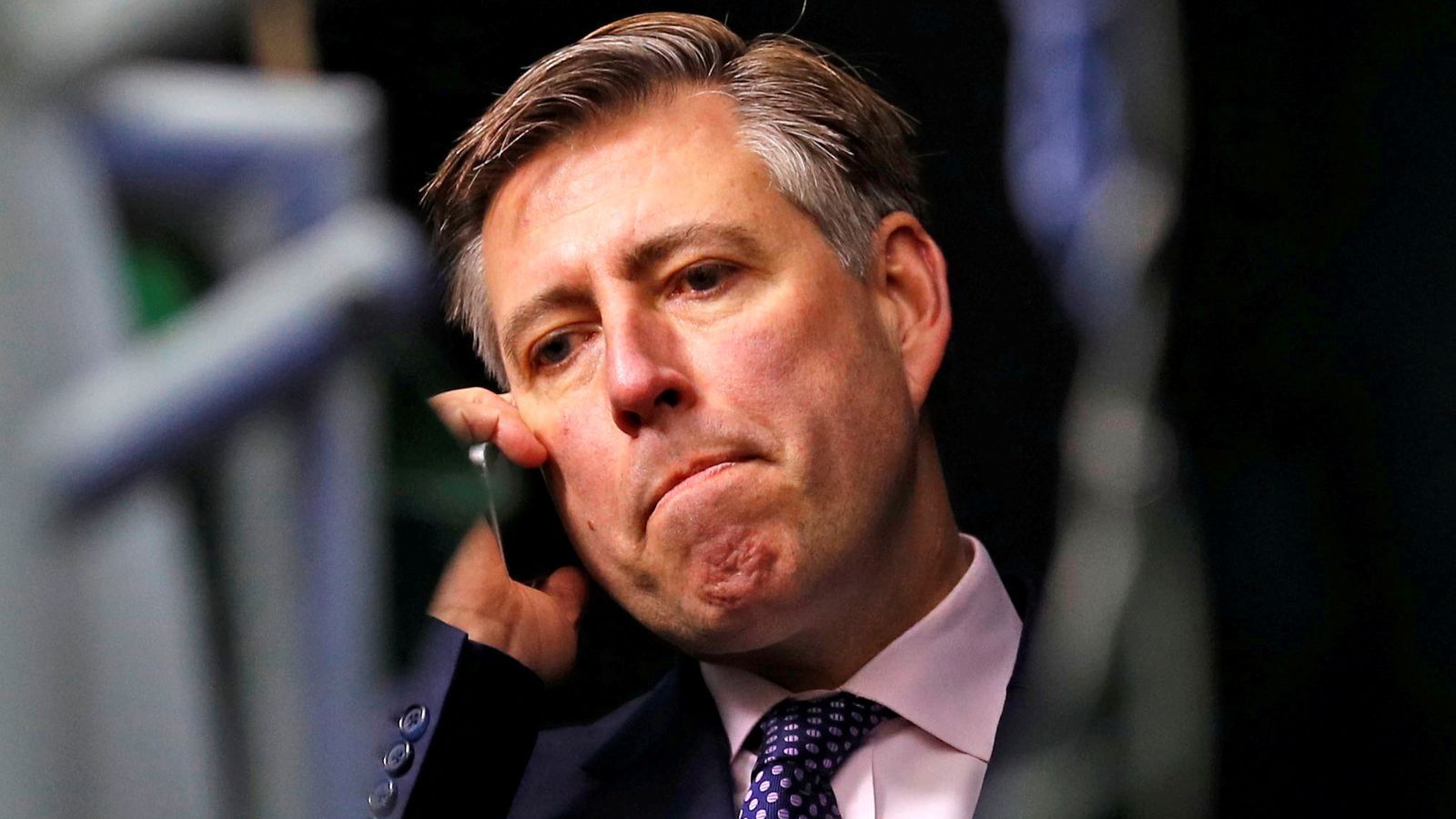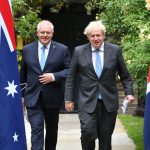A battle for one of the most powerful posts in the Conservative Party is reaching its climax amid claims that Boris Johnson is plotting to install a loyalist and oust an outspoken critic.
Tory grandee Sir Graham Brady, chairman of the powerful 1922 Committee of Conservative backbenchers since 2010, is facing a challenge from a former junior minister, Heather Wheeler.
MPs have told Sky News the prime minister wants to remove Sir Graham because of his public criticism of coronavirus lockdowns in TV and radio interviews and newspaper articles and his frequent rebellions in House of Commons votes.
The chairman of “the ’22”, the shop steward of Conservative backbenchers, is one of the most influential positions in the Tory party, with the power to make or break ministerial careers and even topple prime ministers.
Its executive committee was traditionally known as “the men in grey suits” who, according to political folklore, had the power to hand a failing party leader “a glass of whisky and a pearl-handled revolver in a darkened room”.
Government sources have denied being involved in Ms Wheeler’s campaign and only Conservative backbenchers are allowed to vote in the election, with the result expected on Wednesday.
“Brady is in danger,” a senior MP who was a minister under David Cameron and Theresa May told Sky News.
“Wheeler has mobilised the 2015, 2017 and 2019 intakes with the view that she is the change.
“Some MPs in the 2019 intake have said Graham Brady is aloof and ‘doesn’t speak to backbenchers or ask our view and he is supposedly our shop steward’. Even if it’s not true, there is a perception.
“I think the message has been very, very unofficially put around that the government would like a change and hence the ambitious are listening.”
But the MP added: “Never forget that this is a potentially a very duplicitous audience.”
In an email to Conservative MPs, Altrincham and Sale West MP Sir Graham said he will support “the independence of backbenchers”, has “proven discretion and integrity” and is a “trusted confidant” of fellow MPs.
But in an attack on Sir Graham, Derbyshire South MP Ms Wheeler says in her letter to Tory MPs that she wants to resolve disputes between ministers and backbenchers behind closed doors.
“I don’t just want to use my position to promote my view,” she wrote pointedly. “I want to take colleagues’ view forward and resolve the issues they care about. I want to listen and have a party that works as a team.”
In recent months, Sir Graham has infuriated government ministers with his increasingly hostile criticisms of the prime minister’s lockdown measures in interventions inside and outside parliament.
During one lockdown debate, last November, he said: “I question whether the government actually has any right to take those measures.
“The thing that troubles me most is the government is reaching too far into the private and family lives of our constituents.
“I think there is a perhaps unintended arrogance in assuming the government has the right to do so.”
Follow the Daily podcast on Apple Podcasts, Google Podcasts, Spotify, Spreaker
In a Daily Mail article, Sir Graham also wrote: “The government’s response to the coronavirus has badly undermined common sense.
“Faith in the judgement of ordinary citizens has been replaced by endless coercion and instruction by the authorities.”
And in a Sky News interview earlier this year, attacking a government ban on UK citizens travelling abroad, he said: “When I was a boy, stopping people travelling overseas was something the Soviet Union did.”
Sir Graham has overcome opposition from the Tory leadership before, however. When he was elected chairman in 2010 he beat Mr Cameron’s preferred candidate, Richard Ottaway, by 126 votes to 85.
Mr Brady, as he then was, had quit the Tory front bench in 2007 over Mr Cameron’s opposition to grammar schools and later urged him to form a minority administration rather than a coalition with the Liberal Democrats.
After the Brady election, Mr Cameron hit back, attempting to increase his control over the 1922 Committee by proposing that ministers should become full members, with the right to vote in the election for chairman.
The move was passed by 168 votes to 118, but a compromise was then drawn up under which ministers and whips would remain members of the 1922 Committee, although not vote on the chairmanship or stand as officials.






















